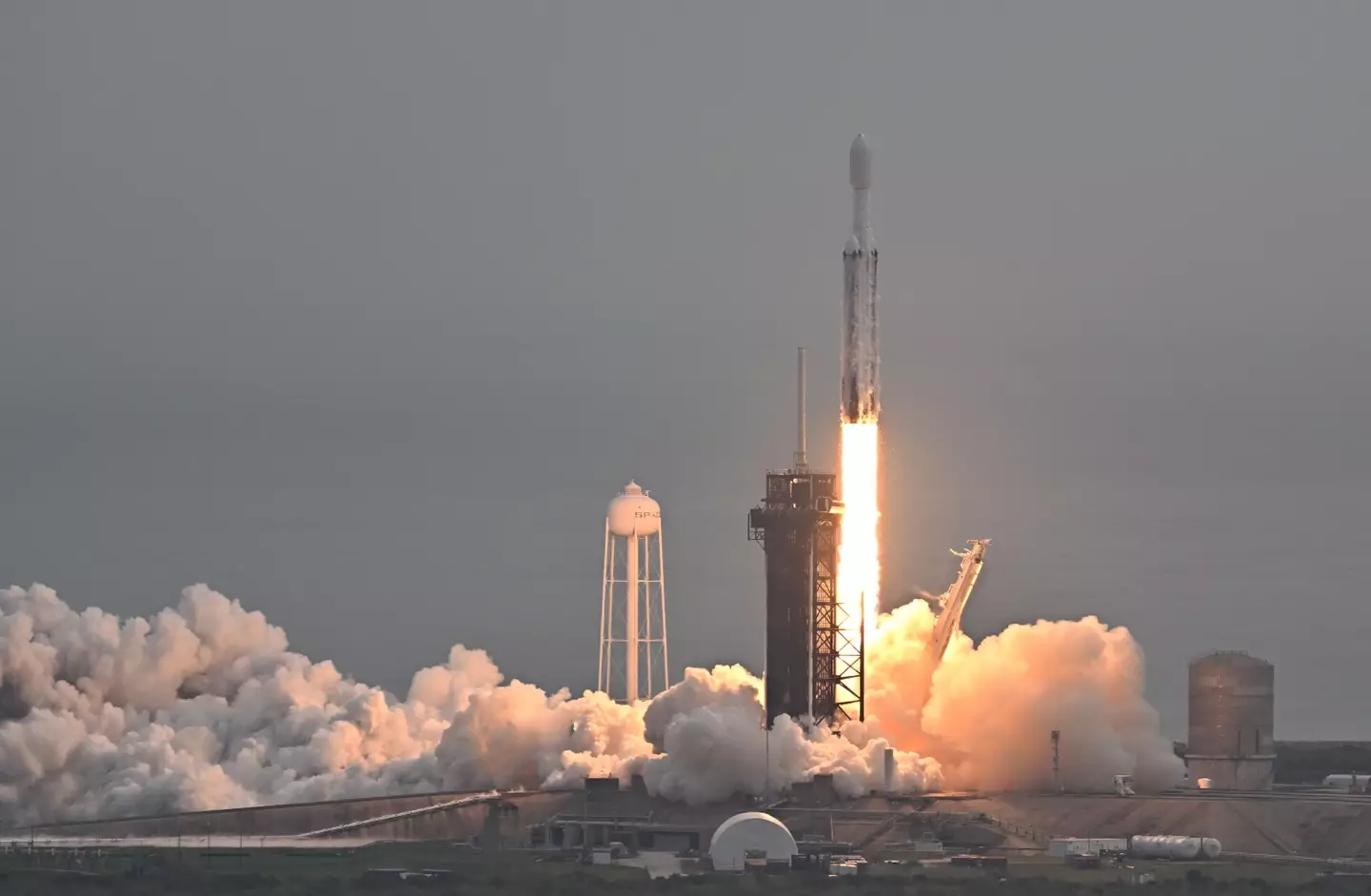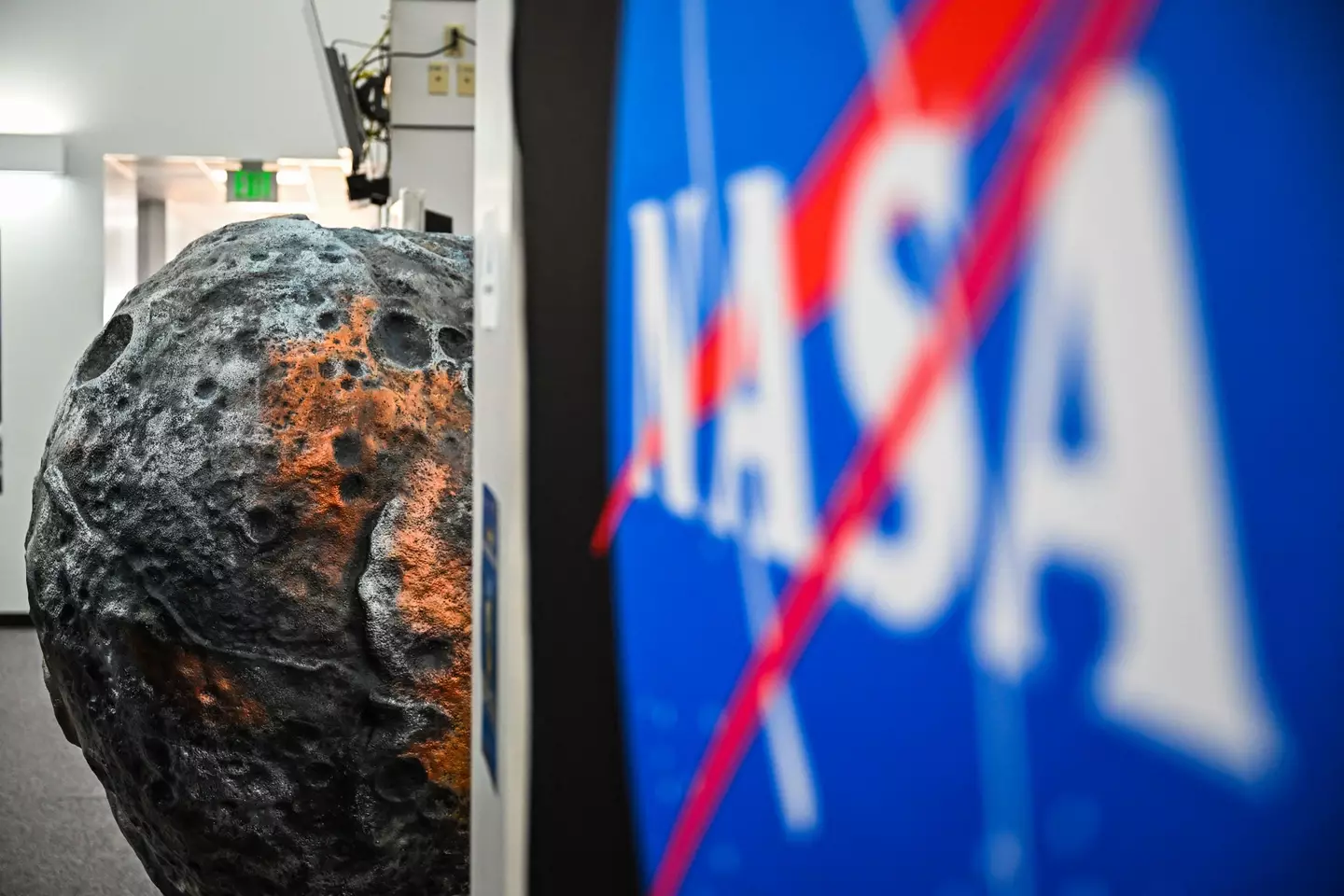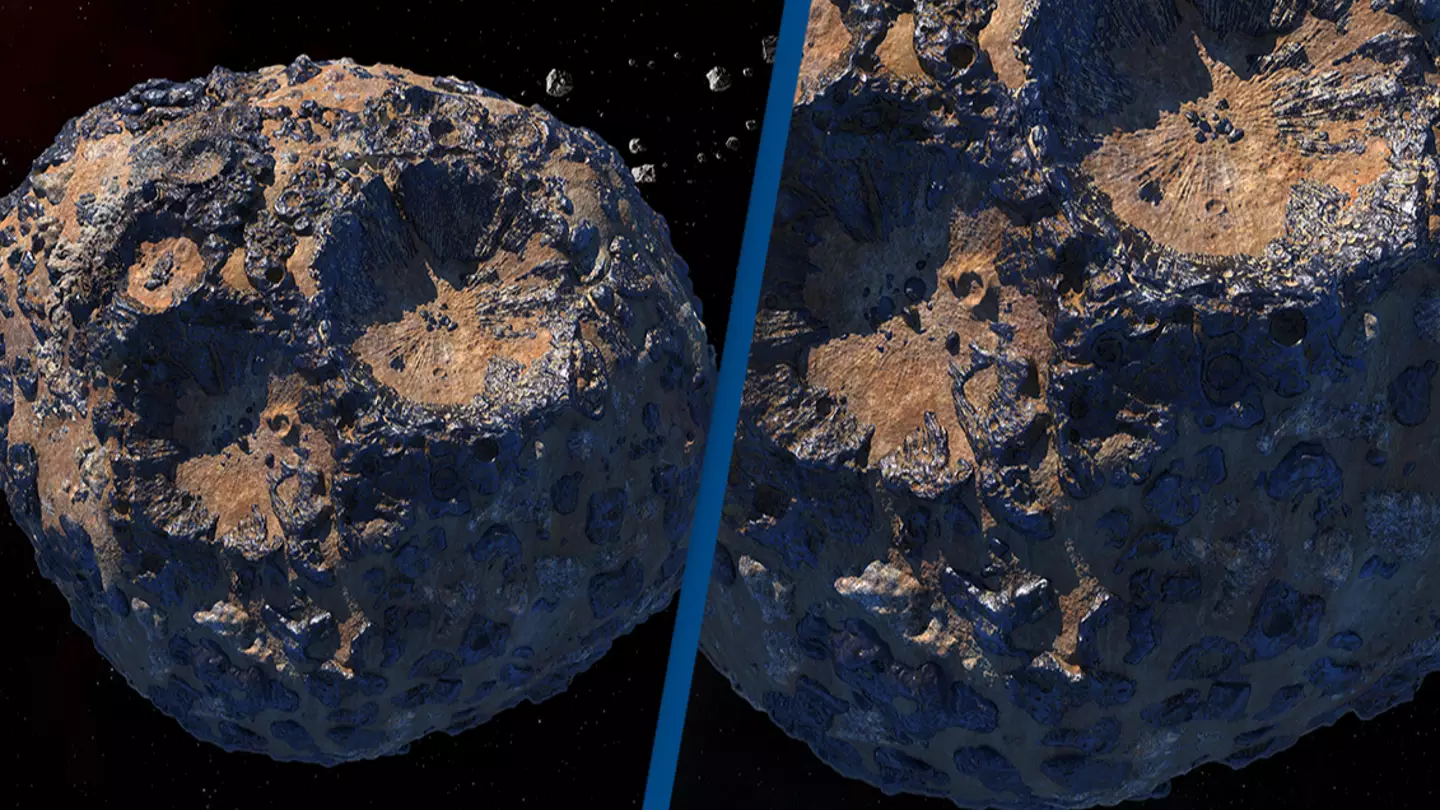The asteroid worth a whopping $10,000,000,000,000,000,000 that NASA is in the process of capturing seems to be rusting.
Last year, the space agency announced that it was going to set off for the valuable asteroid, named 16 Psyche.
Thought to contain precious metals, including gold, iron and nickel, NASA is really keen to get its hands on the asteroid.
"Teams of engineers and technicians are working almost around the clock to ensure the orbiter is ready to journey 2.5 billion miles to a metal-rich asteroid that may tell us more about planetary cores and how planets form," the space agency said in a statement released in July 2023.
Advert
The mission officially began in October 2023 as the spacecraft was launched from NASA's Kennedy Space Center in Cape Canaveral, Florida.

Travelling at a speed of approximately 84,000mph through space, it's expected to reach the valuable asteroid in August 2029.
Back in 2017, before the mission saw liftoff, experts discovered traces of water on Psyche's surface.
Advert
The inconclusive findings suggest Psyche's surface may contain small amounts of water. Either as ice or hydrated metals, the groups bound to metal on the surface, which in turn creates rust.
The findings actually led to scientists and many at NASA pushing ahead with the Psyche project in the first place.
I think there's no doubt the reason as to why the NASA mission had made so many headlines is because of the money involved with it.
But why is the asteroid worth a sizeable $10,000,000,000,000,000,000?
Advert
Experts believe it's worth so much because of it being made up of elements including platinum and palladium.

Such precious metals are seen as essential to the likes of cars and electronics.
If NASA and co are able to mine the goods, then they'll have a very valuable asset on their hands.
Advert
While that may still be a few years away from coming to fruition, plans are in place for when that day comes.
Many companies are looking into the possibility of building mines on Psyche, though some concede the technology could do with a push if it was to become a reality.
Philip Metzger, a planetary physicist at the University of Central Florida, told Live Science: "The technologies need to be advanced [...] before we're ready to start building a flight mission. What's lacking right now is funding."
The expert went on to say money would have to be pumped in quickly, adding a small-scale mining operation could happen.

